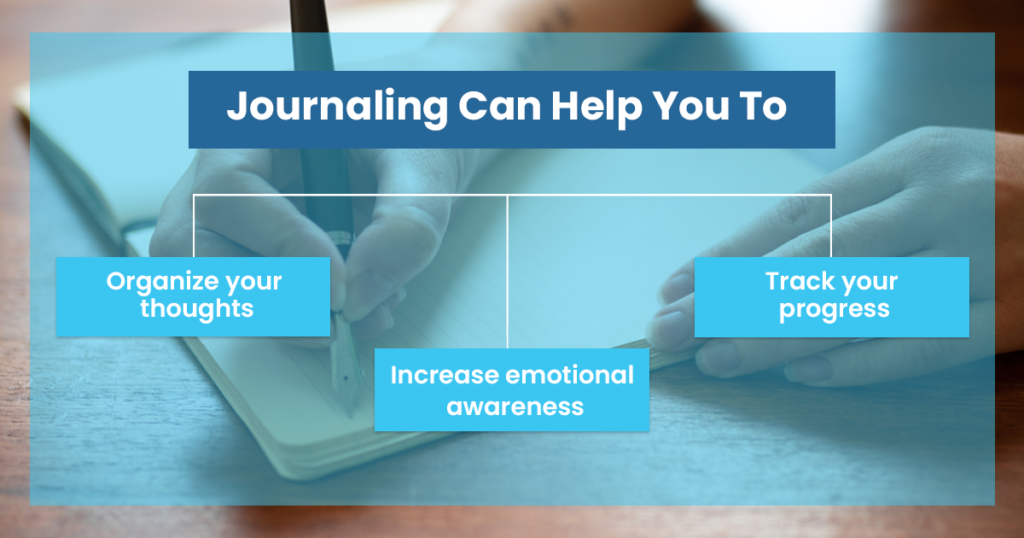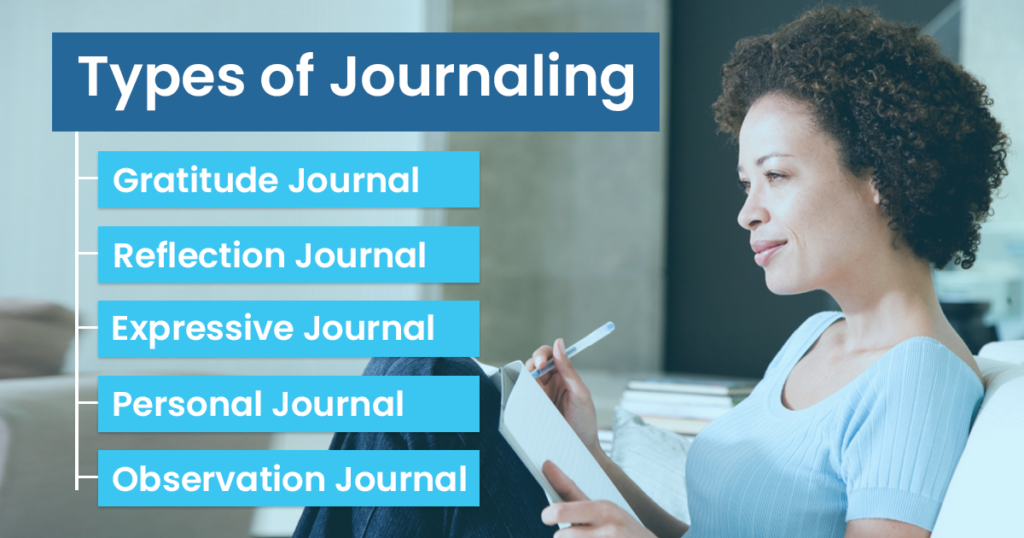
According to research, writing about one’s feelings and experiences can significantly improve physical and mental health. Jotting down all of your thoughts, good or bad, can help you recover from an addiction. When people depend on a substance, their thinking capabilities are affected to a greater extent. Journaling can allow you to gather your thoughts and more efficiently organize them, making the process feel less overwhelming.
Writing in a journal can help relieve stress and is beneficial to both the mind and the body during the healing process. Looking back at previous entries provides a benchmark, showing you how far you’ve come. Many counselors recommend keeping a journal around to ease the recovery process.
You begin to learn new things about your different feelings by writing in a journal. The habit of journaling is a powerful tool for recovery as it helps increase emotional awareness.
Types of Journals
People can revise and reflect on what they need to do to recover from their addiction by putting their abstract ideas into words. Another advantage is the ability to express problems, complaints, and successes without the judgment of anyone else. A study published in the Journal of Experimental Psychology in 2001 discovered that keeping a creative journal improved working memory and cognitive integration.
There are different types of journals, each focusing on different aspects of recovery. Journaling can be a helpful practice, from focusing on your blessings daily to writing about your anxiety triggers. Below are some of the most common types of journals people in recovery typically keep with them.
Gratitude Journal
In a gratitude diary, you write down a few things you are grateful for daily. These things you jot down can be as simple as a delicious meal you enjoyed that day or something more meaningful like a friendship. Expressing gratitude for a specific aspect of your day in greater detail is preferable. As well as aiding recovery, these journals can do wonders for those with mental health problems like depression or anxiety disorder.
Reflection Journal
A reflection journal is great for recording the steps you need to take to achieve your short-term and long-term goals. This type of journal helps keep all your thoughts together and provides a clear roadmap for what you need to do in your life. Understanding where you want to be in life and mapping out what you want to accomplish can keep you more motivated in your recovery. To complete your goals, assign yourself small and more manageable tasks.
Expressive Journaling
Expressive journals allow you to express and examine your feelings while reflecting on the day’s events. Consider including some writing prompts to help you get your creative juices flowing. It is an excellent way of expressing whatever is going on in your mind. A health-themed notebook can be a valuable tool if you’re trying to improve your health by becoming more active and eating more healthfully.
Personal Journal
Many people keep diaries to track what they’ve accomplished, lessons they’ve learned, and insights gained from their daily experiences. Keeping a success journal will help you stay motivated and set the tone for your day. Keep a journal throughout the day rather than just at the beginning or end. A personal journal is a helpful tool for self-discovery as it can help you identify your wrongdoings and stabilize you throughout your recovery.
Observation Journal
An observation diary is an excellent place to record your thoughts at the end of the day. It would help if you kept a journal during this time to record your thoughts and feelings and any decisions you make. This type of Journaling aims to help you relax and sleep well. The addiction recovery journal is helpful for serenity. It is also commonly referred to as a stream of consciousness journal.
Can Journaling Help You Avoid Relapse?
Changing perspective on oneself is essential to the addiction recovery process. Keeping a journal can be very beneficial if you or a loved one is struggling with recovery. Writing about your experiences or expressing yourself through digital media can help you find relapse triggers so that you can work to avoid them. A journal entry can allow you to elaborate on the motivations responsible for your addiction.
Keeping a notebook is highly recommended for making sense of your ideas and feelings. While writing, you may discover that you are not upset with someone in your life but rather depressed about something completely different.
Identifying Old Triggers
Relapse can be avoided by being honest and open about your triggers. People, places, items, actions, and feelings that lead to the use of drugs or alcohol are referred to as a person’s triggers in recovery. By keeping a journal, you can discover, comprehend, and control your own personal triggers. Journaling is pivotal in productivity, internal fueling, and is a great coping mechanism.

Frequently Asked Questions
What do you write in a recovery journal?
When you’re going into a phase of recovery, expressing your gratitude, thoughts, desires, and expressions can help you gather ideas and identify goals throughout your journey.
How do you start a recovery journal?
To get started with recovery journaling, simply pick up a notebook at the store, identify what kind of journal you would like it to be, then begin writing entries every day. For instance, if you have a gratitude journal, get started by writing everything you are grateful for that day in great detail. Remember to write in your journal once, if not twice a day, focusing on all that you have to be grateful for each and every day.
How does writing help in the recovery of addiction?
Writing down thoughts, feelings, goals, etc., throughout recovery can be a great way to organize ideas and track goals. Journaling is an excellent way of expressing your feelings, processing difficult emotions, and reflecting on your goals for a smoother recovery.
The Haven Can Help You Recover From Addiction
If you or a loved one is struggling with addiction, The Haven is here to help. Our treatment plans aim to maintain your health and make your recovery as comfortable as possible. At Haven, we offer effective inpatient programs led by medical professionals who are dedicated to helping you recover in a safe place.
When you are ready to take the first step towards addiction recovery, contact us at (561)-328-6827.






